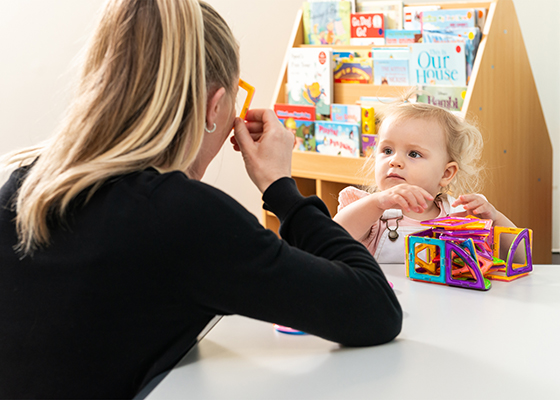Search
Showing results for "Au"
Research
Pneumococcal carriage, serotype distribution, and antimicrobial susceptibility in Papua New Guinean children vaccinated with PCV10 or PCV13 in a head-to-head trialChildren in Papua New Guinea (PNG) are at high risk of pneumococcal infections. We investigated pneumococcal carriage rates, serotype distribution, and antimicrobial susceptibility in PNG children after vaccination with 10-valent or 13-valent pneumococcal conjugate vaccines (PCV10; PCV13).
Research
“It helps and it doesn’t help”: maternal perspectives on how the use of smartphones and tablet computers influences parent-infant attachmentAs families increase their use of mobile touch screen devices (smartphones and tablet computers), there is potential for this use to influence parent-child interactions required to form a secure attachment during infancy, and thus future child developmental outcomes. Thirty families of infants (aged 9-15 months) were interviewed to explore how parents and infants use these devices, and how device use influenced parents' thoughts, feelings and behaviours towards their infant and other family interactions.
Research
Infectious complications and optimising infection prevention for children with cochlear implantsTo describe the clinical epidemiology of children receiving cochlear implants, as well as the management and outcomes of cochlear implant infections and adherence to infection prevention measures.
Research
Australian Aboriginal Otitis-Prone Children Produce High-Quality Serum IgG to Putative Nontypeable Haemophilus influenzae Vaccine Antigens at Lower Titres Compared to Non-Aboriginal ChildrenNontypeable Haemophilus influenzae (NTHi) is the most common bacterial otopathogen associated with otitis media (OM). NTHi persists in biofilms within the middle ears of children with chronic and recurrent OM. Australian Aboriginal children suffer exceptionally high rates of chronic and recurrent OM compared to non-Aboriginal children.
Research
Incidence of acute rheumatic fever in northern and western Uganda: a prospective, population-based studyAcute rheumatic fever is infrequently diagnosed in sub-Saharan African countries despite the high prevalence of rheumatic heart disease. We aimed to determine the incidence of acute rheumatic fever in northern and western Uganda.
Research
Viridans Group Streptococci in Pediatric Leukemia and Stem Cell Transplant: Review of a Risk-stratified Guideline for Empiric Vancomycin in Febrile NeutropeniaViridans group streptococci (VGS) are an important cause of sepsis in immunosuppressed children. We reviewed the effectiveness of risk-stratified addition of vancomycin to empiric febrile neutropenia therapy among 107 children with leukemia or undergoing an allogeneic transplant.
Research
The role of Kingella kingae in pre-school aged children with bone and joint infectionsThe Pre-school Osteoarticular Infection (POI) study aimed to describe the burden of disease, epidemiology, microbiology and treatment of acute osteoarticular infections (OAI) and the role of Kingella kingae in these infections.

News & Events
Five tips to help autistic kids communicateSpeech Pathologist and Research Development Manager Sarah Pillar shares her strategies for supporting autistic children to communicate.

Investigating the physical impact of Long COVID on ORIGINS families

News & Events
Who are our exercise researchers and what do they do?A new ongoing Q & A series focusing on different research themes within the Children’s Diabetes Centre - focus: exercise team.
